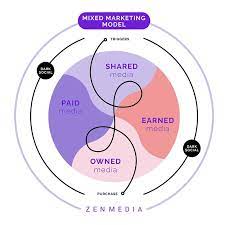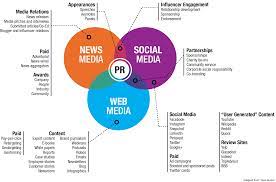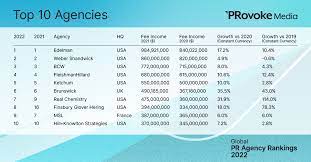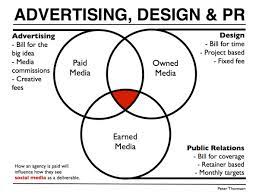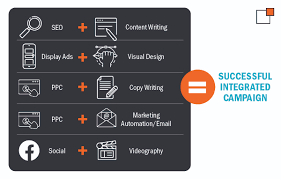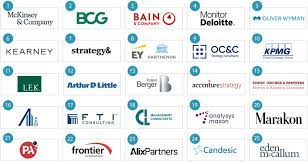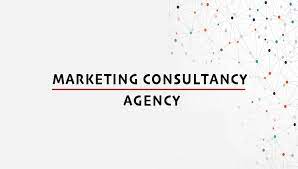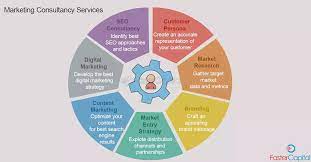Title: Elevate Your Business with a Marketing Strategy Consultant
Introduction:
In today’s fast-paced and competitive business landscape, having a well-defined marketing strategy is crucial for success. However, developing an effective marketing plan can be a daunting task, especially for businesses lacking the necessary expertise or resources. This is where a marketing strategy consultant comes in – a professional who can guide you towards creating and implementing a winning marketing strategy tailored to your unique business needs.
Understanding the Role of a Marketing Strategy Consultant:
A marketing strategy consultant is an experienced professional who specializes in analyzing market trends, consumer behavior, and industry dynamics. They possess the knowledge and skills to develop comprehensive marketing plans that align with your business objectives.
Benefits of Hiring a Marketing Strategy Consultant:
- Fresh Perspective: A consultant brings an external viewpoint to your business, enabling them to identify untapped opportunities and offer innovative ideas. Their unbiased analysis can challenge existing assumptions and bring new insights that may have been overlooked.
- Expertise and Experience: With their extensive experience in various industries, marketing strategy consultants possess valuable expertise in market research, target audience analysis, competitive analysis, branding, positioning, pricing strategies, and more. They stay up-to-date with the latest trends and best practices to ensure your business stays ahead of the competition.
- Customized Strategies: A consultant will work closely with you to understand your business goals, target audience, and unique selling propositions. They will then craft a tailored marketing strategy that aligns with your specific needs while considering budget constraints.
- Cost-Effectiveness: Hiring an external consultant can be more cost-effective than maintaining an in-house team dedicated solely to marketing strategy development. Consultants bring specialized skills on-demand without the need for long-term commitments or additional overhead costs.
- Time-Saving: Developing an effective marketing strategy requires extensive research, analysis, planning, and implementation. By outsourcing this responsibility to a consultant, you can focus on core business activities while leveraging their expertise to accelerate the strategy development process.
- Measurable Results: A marketing strategy consultant understands the importance of setting measurable goals and tracking key performance indicators. They will help you establish clear metrics to evaluate the success of your marketing initiatives, allowing for adjustments and improvements along the way.
Conclusion:
In today’s competitive business environment, a well-crafted marketing strategy is essential for growth and sustainability. By enlisting the expertise of a marketing strategy consultant, you can gain a fresh perspective, tap into specialized knowledge, and develop a customized plan that sets your business apart from the competition.
Whether you’re a small startup or an established enterprise, investing in a marketing strategy consultant can provide invaluable guidance and support to help you navigate the complexities of the ever-evolving marketplace. So, take that leap forward and elevate your business with the assistance of a skilled marketing strategy consultant today.
9 Key Benefits of Hiring a Marketing Strategy Consultant in the UK
- Expertise in developing marketing plans that are tailored to the business’s individual needs.
- Ability to identify new opportunities and develop effective strategies for exploiting them.
- Expertise in understanding customer behaviour and developing insights into how best to reach target markets.
- Knowledge of current trends and techniques used in the industry, enabling them to provide up-to-date advice on marketing strategies.
- Experience in analysing data from market research activities and using it to inform strategic decisions.
- A comprehensive understanding of digital marketing tools, enabling them to create an effective online presence for a business or organisation.
- An ability to evaluate existing campaigns and suggest improvements where appropriate, ensuring maximum return on investment (ROI).
- Ability to develop creative solutions that will help a business stand out from its competitors and gain a competitive edge in the marketplace .
- Accessibility – with many consultants offering remote services, businesses can benefit from expert advice without needing to hire additional staff or pay expensive travel costs
Drawbacks of Hiring a Marketing Strategy Consultant in the UK
- Expensive – Marketing strategy consultants can be expensive to hire, and may not be a feasible option for small businesses or those with limited budgets.
- Limited Expertise – Although marketing strategy consultants are experienced in their field, they may not have the expertise and knowledge of your particular industry or market, which could limit the effectiveness of their advice.
- Conflict of Interest – A consultant’s advice may be biased towards certain vendors or solutions if they have a vested interest in them, which could lead to less than optimal results for your business.
Expertise in developing marketing plans that are tailored to the business’s individual needs.
When it comes to marketing, one size does not fit all. Each business has its own unique goals, target audience, and competitive landscape. That’s why one of the key advantages of hiring a marketing strategy consultant is their expertise in developing tailored marketing plans.
A marketing strategy consultant understands that a cookie-cutter approach will not yield optimal results. They take the time to thoroughly analyze your business’s individual needs and objectives. By gaining a deep understanding of your industry, target market, and competitive landscape, they can create a custom marketing plan that aligns perfectly with your business.
This tailored approach ensures that every aspect of the marketing strategy is designed to maximize impact and drive results. From choosing the most effective channels to crafting compelling messaging, every element is carefully considered based on your specific requirements.
A marketing strategy consultant brings a wealth of experience and knowledge in developing successful marketing plans across various industries. They stay up-to-date with the latest trends, consumer behavior patterns, and emerging technologies. This allows them to incorporate innovative strategies into your plan that are relevant and effective for reaching your target audience.
By leveraging their expertise, you can avoid common pitfalls and make informed decisions about which marketing tactics will work best for your business. Whether it’s digital advertising, content marketing, social media campaigns, or traditional advertising methods, a consultant will recommend the most suitable strategies that align with your budget and goals.
Furthermore, a tailored marketing plan takes into account any unique challenges or opportunities specific to your industry or market segment. It considers factors such as seasonality, market trends, consumer preferences, and competitive positioning. By addressing these nuances in your plan, you can gain a competitive edge and stand out from the crowd.
Ultimately, by working with a marketing strategy consultant who understands how to develop plans tailored to individual business needs, you can ensure that every penny invested in marketing delivers maximum impact. Your efforts will be focused on reaching the right audience at the right time with the right message.
So, if you want to take your marketing efforts to the next level and achieve tangible results, consider enlisting the expertise of a marketing strategy consultant. With their ability to create custom marketing plans that are tailored to your business’s individual needs, you can confidently navigate the ever-changing marketing landscape and achieve your desired outcomes.
Ability to identify new opportunities and develop effective strategies for exploiting them.
Title: Unleashing Growth Potential: The Power of a Marketing Strategy Consultant
In the dynamic world of business, identifying new opportunities and capitalizing on them can be a game-changer. This is where the expertise of a marketing strategy consultant truly shines. With their ability to identify untapped potential and develop effective strategies for exploiting these opportunities, they become invaluable partners in driving growth and success.
A marketing strategy consultant possesses a keen eye for spotting emerging trends, market shifts, and consumer demands. Their extensive experience across various industries enables them to identify gaps in the market that others may overlook. By conducting thorough market research and analysis, they uncover hidden opportunities that can give your business a competitive edge.
Once these opportunities are identified, a marketing strategy consultant excels at developing tailored strategies to exploit them effectively. They understand that each business is unique, with its own strengths, weaknesses, and target audience. By leveraging their expertise in consumer behavior and market dynamics, they craft strategies that align with your business goals and resonate with your target audience.
One of the key advantages of working with a marketing strategy consultant is their ability to think outside the box. They bring fresh perspectives and innovative ideas to the table, challenging conventional thinking and pushing boundaries. This creative approach allows them to develop strategies that differentiate your brand from competitors and capture the attention of your target market.
Moreover, a marketing strategy consultant understands the importance of aligning new opportunities with your existing capabilities. They assess your resources, capabilities, and constraints to ensure that any new ventures are feasible and sustainable for your business. This careful consideration helps minimize risks while maximizing potential rewards.
By harnessing their analytical skills and strategic thinking abilities, marketing strategy consultants help businesses seize new opportunities at the right time. They develop actionable plans that outline clear objectives, tactics, timelines, and performance metrics. This ensures that your efforts are focused on achieving tangible results while staying adaptable to changing market dynamics.
The ability of a marketing strategy consultant to identify new opportunities and develop effective strategies for exploiting them is a game-changer for businesses seeking growth. By partnering with these experts, you can unlock untapped potential, expand your market reach, and stay ahead of the competition.
So, if you’re looking to unleash your business’s growth potential and navigate the ever-changing business landscape with confidence, consider enlisting the expertise of a marketing strategy consultant. With their insights, experience, and strategic prowess, they will help you seize new opportunities and drive your business towards sustainable success.
Expertise in understanding customer behaviour and developing insights into how best to reach target markets.
Understanding Customer Behaviour: A Key Advantage of Marketing Strategy Consultants
In the rapidly evolving world of marketing, businesses are constantly seeking ways to effectively reach their target markets. One crucial aspect that plays a vital role in this process is understanding customer behaviour. This is where marketing strategy consultants shine, with their expertise in comprehending consumer actions and developing insights that can drive successful marketing campaigns.
Marketing strategy consultants possess a deep understanding of various factors that influence consumer behaviour. They analyze market trends, demographics, psychographics, and purchasing patterns to gain valuable insights into what motivates customers to make buying decisions. By delving into these insights, consultants can help businesses tailor their marketing efforts to resonate with their target audience.
One significant advantage of working with marketing strategy consultants is their ability to develop comprehensive customer profiles. They go beyond just demographics and delve into psychographic details such as interests, values, and lifestyle choices. This holistic understanding allows businesses to create targeted marketing messages that speak directly to the desires and needs of their potential customers.
Moreover, marketing strategy consultants have a wealth of experience in conducting market research and data analysis. They employ various research methodologies such as surveys, focus groups, and data mining techniques to gather valuable information about customer preferences and behaviours. Armed with this knowledge, they can identify emerging trends or shifts in consumer behaviour that businesses can leverage for strategic advantage.
Another key aspect where marketing strategy consultants excel is in helping businesses identify the most effective channels for reaching their target markets. With an in-depth understanding of customer behaviour, they can determine which platforms or mediums are most likely to capture the attention of potential customers. Whether it’s through social media advertising, content marketing strategies, influencer partnerships, or traditional advertising channels, consultants can guide businesses towards the most impactful methods for engaging with their target audience.
By leveraging their expertise in understanding customer behaviour and developing insights into how best to reach target markets, marketing strategy consultants provide invaluable guidance for businesses seeking growth and success. They help businesses navigate the complexities of consumer preferences, enabling them to craft marketing strategies that resonate and drive meaningful results.
In conclusion, in a world where consumers are continuously bombarded with marketing messages, understanding customer behaviour is crucial for businesses to stand out and connect with their target markets effectively. Marketing strategy consultants bring their expertise and experience to the table, offering businesses a deep understanding of consumer motivations and preferences. By leveraging this knowledge, businesses can develop tailored marketing strategies that successfully engage their target audience and drive business growth.
Knowledge of current trends and techniques used in the industry, enabling them to provide up-to-date advice on marketing strategies.
Staying ahead of the curve in the dynamic world of marketing is no easy task. With trends and techniques constantly evolving, businesses need to adapt their strategies to stay relevant and competitive. This is where a marketing strategy consultant proves invaluable. One significant advantage they bring to the table is their deep knowledge of current trends and techniques used in the industry.
Marketing strategy consultants are constantly immersed in the marketing landscape, keeping a finger on the pulse of the latest developments. They stay up-to-date with emerging technologies, platforms, consumer behaviors, and market dynamics. This extensive knowledge allows them to provide businesses with up-to-date advice on marketing strategies.
By working with a marketing strategy consultant, businesses gain access to insights that can give them an edge over their competitors. Consultants can identify emerging trends that align with a company’s target audience and help them capitalize on new opportunities. They understand which digital channels are gaining traction, which social media platforms are most effective for specific industries, and how consumer preferences are evolving.
In addition to trends, marketing strategy consultants are well-versed in the latest techniques used in the industry. They have experience implementing successful campaigns across various channels such as content marketing, social media advertising, influencer partnerships, search engine optimization (SEO), email marketing, and more. Their expertise enables them to recommend strategies that resonate with consumers and drive results.
Furthermore, consultants can assess which techniques will work best for a particular business based on its industry, target market, budget constraints, and goals. They have a comprehensive understanding of what has worked for similar businesses in the past and can tailor their advice accordingly.
The advantage of having access to this wealth of knowledge is that businesses can make informed decisions about their marketing strategies. By leveraging the expertise of a marketing strategy consultant who understands current trends and techniques, companies can ensure they are making use of the most effective tools available.
In conclusion, one significant pro of hiring a marketing strategy consultant is their knowledge of current trends and techniques in the industry. Their ability to provide up-to-date advice on marketing strategies allows businesses to stay ahead of the competition, adapt to changing consumer behaviors, and make informed decisions about their marketing efforts. By working with a consultant, businesses can tap into this valuable expertise and maximize their chances of success in the ever-evolving world of marketing.
Harnessing the Power of Data: How a Marketing Strategy Consultant Utilizes Market Research
In today’s data-driven world, businesses have access to a wealth of information that can shape their marketing strategies and drive success. However, deciphering this data and transforming it into actionable insights requires expertise and experience. This is where a marketing strategy consultant with a background in analysing market research activities becomes invaluable.
A marketing strategy consultant understands the significance of market research in making informed strategic decisions. They possess the skills to collect, analyse, and interpret data from various sources, including surveys, focus groups, customer feedback, competitor analysis, and industry reports. By delving deep into these insights, they can uncover valuable patterns and trends that guide their clients towards effective marketing strategies.
One key advantage of working with a marketing strategy consultant experienced in data analysis is their ability to identify target audience preferences and behaviours. Through comprehensive market research analysis, they gain valuable insights into consumer demographics, psychographics, purchasing habits, and preferences. Armed with this knowledge, they can tailor marketing campaigns to resonate with specific target segments effectively.
Moreover, these consultants understand the importance of staying up-to-date with market trends. By continuously monitoring industry developments and analysing data from ongoing research activities, they can identify emerging opportunities or potential threats. This proactive approach allows them to advise clients on adapting their strategies accordingly to stay ahead of the competition.
Another benefit lies in the consultant’s ability to translate complex data into clear recommendations for strategic decision-making. They possess the expertise to distill vast amounts of information into concise summaries that highlight key findings and actionable next steps. This ensures that their clients can make well-informed decisions based on solid evidence rather than intuition alone.
Furthermore, a marketing strategy consultant skilled in analysing market research data understands that successful strategies are not set in stone but require continuous evaluation and refinement. By tracking key performance indicators (KPIs) derived from market research metrics, they can measure the effectiveness of marketing initiatives and make data-driven adjustments as needed. This iterative process ensures that strategies remain relevant and effective in an ever-evolving marketplace.
In conclusion, the ability to analyse market research data and use it to inform strategic decisions is a significant advantage of working with a marketing strategy consultant. Their expertise in data analysis allows them to uncover valuable insights, identify target audience preferences, monitor market trends, and make informed recommendations for effective marketing strategies. By harnessing the power of data, businesses can gain a competitive edge and achieve their marketing goals with confidence.
Title: Harnessing the Power of Digital Marketing with a Strategy Consultant
In today’s digital age, establishing a strong online presence is vital for businesses and organizations seeking to thrive in the competitive marketplace. This is where a marketing strategy consultant with a comprehensive understanding of digital marketing tools becomes invaluable. These professionals possess the expertise to create an effective online presence that drives business growth and maximizes brand visibility.
Digital marketing encompasses a wide range of strategies and tools, including search engine optimization (SEO), social media marketing, content creation, email campaigns, pay-per-click advertising, and more. A marketing strategy consultant excels in leveraging these tools to develop a cohesive digital marketing plan tailored to your business or organization.
One of the key advantages of hiring a marketing strategy consultant is their ability to navigate the ever-evolving digital landscape. They stay up-to-date with the latest trends, algorithms, and best practices across various digital platforms. This knowledge empowers them to craft strategies that optimize your online presence and ensure your brand reaches its target audience effectively.
A comprehensive understanding of digital marketing tools allows consultants to identify which platforms are most suitable for your specific industry or niche. They can determine whether it’s best to focus on search engine optimization to improve organic visibility or invest in targeted social media campaigns to engage with potential customers directly.
Moreover, these consultants possess the skills necessary to analyze data and metrics from various digital channels. By monitoring key performance indicators such as website traffic, conversion rates, engagement levels, and customer behaviour patterns, they can refine strategies for optimal results.
When it comes to creating an effective online presence, content plays a crucial role. Marketing strategy consultants excel at developing compelling content that resonates with your target audience while aligning with your brand voice and values. They understand how different types of content—such as blog posts, videos, infographics—can engage users across different platforms and drive conversions.
Additionally, a marketing strategy consultant can guide you in selecting the right digital marketing tools and platforms to suit your budget and goals. This ensures that your resources are allocated strategically, maximizing your return on investment.
In conclusion, harnessing the power of digital marketing requires a deep understanding of the tools and strategies available. By engaging a marketing strategy consultant with expertise in digital marketing, you can establish an effective online presence that enhances brand visibility, drives customer engagement, and ultimately boosts business growth. Embrace the opportunities offered by digital marketing and let a skilled consultant guide you towards online success.
An ability to evaluate existing campaigns and suggest improvements where appropriate, ensuring maximum return on investment (ROI).
Title: Maximizing ROI: The Power of a Marketing Strategy Consultant
Introduction:
In the dynamic world of marketing, businesses are constantly seeking ways to maximize their return on investment (ROI). One essential benefit of hiring a marketing strategy consultant is their ability to evaluate existing campaigns and suggest improvements where appropriate. This expertise can significantly enhance your marketing efforts, ensuring that every pound spent delivers the maximum impact.
Evaluating Existing Campaigns:
A skilled marketing strategy consultant possesses the knowledge and experience to thoroughly assess your current marketing campaigns. They delve into the data, metrics, and analytics to gain a comprehensive understanding of what’s working and what’s not. By conducting a detailed evaluation, they can identify areas that require improvement or fine-tuning.
Suggesting Effective Improvements:
Once an evaluation is complete, the marketing strategy consultant will provide valuable insights and recommendations for enhancing your campaigns. They bring fresh eyes and an objective perspective, enabling them to identify potential gaps or untapped opportunities that may have been overlooked internally.
Their expertise allows them to suggest strategic adjustments in various areas, such as targeting specific audience segments more effectively, refining messaging for greater impact, optimizing media channels for better reach, or adjusting campaign timing for maximum exposure. Their goal is to align your marketing efforts with industry best practices while tailoring recommendations to suit your unique business objectives.
Ensuring Maximum ROI:
By implementing the suggested improvements from a marketing strategy consultant, you can enhance the effectiveness of your campaigns and ultimately achieve a higher ROI. These professionals understand that every pound spent on marketing should generate tangible results. They help you allocate resources wisely by focusing on strategies that are most likely to deliver optimal returns.
The ability to evaluate existing campaigns and suggest improvements is invaluable in today’s competitive marketplace. It allows businesses to adapt quickly and stay ahead of changing consumer trends while ensuring that their marketing investments are utilized optimally.
Conclusion:
In an era where businesses must make every penny count in their marketing efforts, the expertise of a marketing strategy consultant can be a game-changer. Their ability to evaluate existing campaigns and suggest improvements ensures that your marketing initiatives are continuously refined for maximum return on investment.
By leveraging their knowledge, experience, and objective perspective, you can enhance the effectiveness of your marketing campaigns and achieve better results. So, consider partnering with a marketing strategy consultant to unlock the full potential of your marketing efforts and take your business to new heights of success.
Ability to develop creative solutions that will help a business stand out from its competitors and gain a competitive edge in the marketplace .
Title: Unleashing Creativity: How a Marketing Strategy Consultant Helps Businesses Stand Out
In today’s crowded marketplace, it’s becoming increasingly challenging for businesses to differentiate themselves from their competitors. This is where the expertise of a marketing strategy consultant shines, as they possess the ability to develop creative solutions that will help businesses stand out and gain a competitive edge.
A marketing strategy consultant understands that a cookie-cutter approach won’t cut it in today’s dynamic business landscape. They recognize the importance of crafting unique strategies that capture the essence of a brand and resonate with its target audience. By leveraging their creativity, they can develop innovative ideas that set businesses apart and leave a lasting impression on consumers.
One of the key advantages of working with a marketing strategy consultant is their fresh perspective. They bring an external viewpoint to the table, unburdened by preconceived notions or biases. This allows them to think outside the box and explore unconventional approaches that may have been overlooked internally.
With their extensive experience across various industries, marketing strategy consultants have an in-depth understanding of market trends, consumer behavior, and competitor strategies. Armed with this knowledge, they can identify gaps in the market and develop tailored solutions that position businesses uniquely.
Moreover, marketing strategy consultants possess strong analytical skills. They meticulously study market data and consumer insights to uncover hidden opportunities. By combining these insights with their creative thinking, they can devise strategies that captivate audiences and drive business growth.
Creativity isn’t limited to just advertising campaigns or visual aesthetics; it permeates every aspect of a business’s marketing efforts. A marketing strategy consultant can infuse creativity into areas such as branding, messaging, product positioning, pricing strategies, and customer experience. They understand how to craft compelling narratives that resonate with customers on an emotional level while aligning with business objectives.
By collaborating closely with businesses, marketing strategy consultants ensure that creative solutions are not only attention-grabbing but also strategically sound. They consider factors such as target audience preferences, industry dynamics, and brand values to ensure that the creative ideas are not just gimmicks but contribute to long-term success.
In today’s hypercompetitive environment, standing out from the crowd is crucial for businesses to thrive. A marketing strategy consultant brings a unique blend of creativity and expertise to the table, enabling businesses to develop innovative solutions that capture attention and leave a lasting impact on consumers. By harnessing their ability to think creatively, businesses can gain a competitive edge and establish themselves as leaders in their respective industries.
So, if you’re looking to break free from the ordinary and make your mark in the marketplace, partnering with a marketing strategy consultant can be your secret weapon. Together, you can unleash creativity and unlock opportunities that will set your business apart from the competition.
Accessibility – with many consultants offering remote services, businesses can benefit from expert advice without needing to hire additional staff or pay expensive travel costs
Title: Unlocking Expertise: The Accessibility Advantage of Marketing Strategy Consultants
In the digital age, businesses are constantly seeking ways to gain a competitive edge in the market. One significant advantage offered by marketing strategy consultants is their accessibility, allowing companies to tap into expert advice without the need for additional staff or costly travel expenses.
With the rise of remote work and advanced communication technologies, many marketing strategy consultants now offer their services remotely. This means that businesses can access their expertise from anywhere in the world, breaking down geographical barriers and expanding opportunities for collaboration.
The accessibility of marketing strategy consultants provides several key benefits:
- Cost-Effective Solutions: Hiring a full-time marketing professional can be expensive, particularly for small or medium-sized businesses with limited budgets. By engaging a marketing strategy consultant remotely, businesses can benefit from expert guidance without incurring the costs associated with hiring additional staff. This cost-effective approach allows companies to allocate resources more efficiently and invest in other areas of growth.
- Flexibility and Scalability: Remote consulting services offer flexibility in terms of project duration and scope. Businesses can engage consultants for short-term projects or ongoing support as needed, scaling up or down according to their specific requirements. This adaptability enables companies to respond quickly to changing market dynamics and seize new opportunities without being tied down by long-term commitments.
- Diverse Expertise: Remote accessibility opens doors to a wider pool of marketing strategy consultants with diverse backgrounds and experiences. Businesses have the freedom to choose from a global talent pool rather than being limited to local resources. This diversity brings fresh perspectives, innovative ideas, and industry-specific knowledge that can significantly enhance a company’s marketing efforts.
- Efficient Communication Channels: Modern communication tools such as video conferencing, email, instant messaging platforms, and project management software enable seamless collaboration between businesses and remote consultants. These efficient channels facilitate real-time discussions, file sharing, progress tracking, and feedback exchange – ensuring effective communication throughout the project.
- Timely Support: Accessibility to marketing strategy consultants means businesses can seek advice and support when they need it most. Whether it’s a critical decision, a new product launch, or an urgent marketing campaign, remote consultants are just a call or message away. This timely support empowers businesses to make informed decisions and take advantage of emerging opportunities promptly.
In conclusion, the accessibility of marketing strategy consultants through remote services has revolutionized the way businesses access expert advice and guidance. By eliminating the need for additional staff or expensive travel costs, companies can leverage the expertise of professionals from around the world. This not only saves resources but also brings diverse perspectives and specialized knowledge to drive effective marketing strategies. Embracing this accessibility advantage can empower businesses to thrive in today’s competitive marketplace.
Expensive – Marketing strategy consultants can be expensive to hire, and may not be a feasible option for small businesses or those with limited budgets.
Title: The Cost Conundrum: Considering the Expense of Marketing Strategy Consultants
Introduction:
When it comes to marketing strategy, businesses often seek the expertise of consultants to gain a competitive edge. While there are numerous benefits to hiring a marketing strategy consultant, one significant drawback that cannot be ignored is the potential cost involved. For small businesses or those with limited budgets, this expense can pose a challenge.
The Expense Factor:
Marketing strategy consultants typically charge fees based on their experience, expertise, and the scope of work involved. These fees can vary significantly depending on factors such as the consultant’s reputation, industry specialization, and geographical location. As a result, their services may be perceived as expensive for some businesses, especially those operating on tight budgets.
The Feasibility Issue:
For small businesses or startups with limited financial resources, allocating a significant portion of their budget towards hiring a marketing strategy consultant may not be feasible. These businesses often prioritize other essential expenses such as product development, operational costs, or building an initial customer base. As a result, they may perceive the cost of hiring a consultant as prohibitive.
Alternative Solutions:
While hiring a marketing strategy consultant may not be financially viable for all businesses, there are alternative solutions that can still help them develop effective marketing strategies:
- In-house Expertise: Small businesses can consider investing in training or developing existing staff members with an aptitude for marketing strategy. This approach allows them to leverage internal talent while minimizing costs.
- Collaborative Partnerships: Seeking partnerships or collaborations with other businesses in complementary industries can provide access to shared resources and expertise without incurring the full expense of hiring an individual consultant.
- Online Resources: The internet offers a wealth of free or affordable resources that provide guidance on various aspects of marketing strategy development. Businesses can utilize online courses, webinars, articles, and forums to gain insights and develop their strategies independently.
- Freelancers or Boutique Agencies: Instead of engaging a full-scale marketing strategy consultant, businesses can consider working with freelancers or boutique agencies that offer specialized services at a more affordable rate. These professionals often bring niche expertise and can tailor their services to suit specific budgetary constraints.
Conclusion:
While the cost of hiring a marketing strategy consultant may present a challenge for small businesses or those with limited budgets, it is essential to explore alternative solutions and weigh the potential benefits against the financial investment. Each business must assess its unique circumstances and determine the most appropriate approach to developing an effective marketing strategy within their means.
Remember, while consultants can offer valuable insights and expertise, success ultimately depends on the commitment, creativity, and resourcefulness of the business itself. By exploring alternative options and leveraging available resources, even businesses with limited budgets can devise effective marketing strategies that help them thrive in today’s competitive marketplace.
Limited Expertise – Although marketing strategy consultants are experienced in their field, they may not have the expertise and knowledge of your particular industry or market, which could limit the effectiveness of their advice.
Title: The Conundrum of Limited Expertise in Marketing Strategy Consultants
Introduction:
Marketing strategy consultants are undoubtedly valuable assets when it comes to developing effective marketing plans. However, like any profession, they too have their limitations. One notable con of working with a marketing strategy consultant is the potential for limited expertise and knowledge in your specific industry or market. This can hinder the effectiveness of their advice and recommendations.
Understanding the Limitations:
While marketing strategy consultants possess a wealth of experience and knowledge in the broader field of marketing, they may lack deep insights into the intricacies and nuances of your particular industry or market. Their expertise is often more generalized, making it challenging for them to fully comprehend the unique challenges and dynamics that your business faces.
The Impact on Advice Effectiveness:
Limited expertise can result in less targeted advice and recommendations. Without a comprehensive understanding of your industry’s specific trends, consumer behavior patterns, competitive landscape, and regulatory requirements, consultants may struggle to provide tailored strategies that truly resonate with your target audience.
Risk of Misaligned Strategies:
Marketing strategies that are not aligned with industry-specific nuances may fall short in generating desired results. A consultant’s lack of familiarity with your market could lead to misguided decisions regarding branding, positioning, messaging, or even pricing strategies. This misalignment might impact customer perception or fail to address key pain points effectively.
Mitigating the Limitations:
To address this con effectively, businesses should consider taking proactive steps when engaging a marketing strategy consultant:
- Thorough Research: Prioritize consultants who have worked within or extensively researched your industry. Look for professionals who demonstrate a solid understanding of market trends and consumer behavior specific to your sector.
- Collaborative Approach: Foster open communication between your team and the consultant. Share detailed insights about your business operations, target audience profiles, competitors’ analysis reports, and any other relevant data that will help them gain a deeper understanding of your industry context.
- Continuous Learning: Encourage the consultant to immerse themselves in your industry by attending conferences, workshops, or engaging in ongoing professional development. This commitment to learning will help them bridge any knowledge gaps and stay updated with the latest industry trends.
Conclusion:
While limited expertise is indeed a con when working with marketing strategy consultants, it can be mitigated through careful selection, collaboration, and continuous learning. By taking these proactive steps, businesses can maximize the benefits of working with consultants while ensuring that their advice aligns effectively with their specific industry or market dynamics. Remember, finding a consultant who understands your industry can significantly enhance the overall success of your marketing strategies.
Conflict of Interest – A consultant’s advice may be biased towards certain vendors or solutions if they have a vested interest in them, which could lead to less than optimal results for your business.
Title: The Conflict of Interest Conundrum: Navigating Bias in Marketing Strategy Consultants
Introduction:
When seeking guidance from a marketing strategy consultant, it’s essential to be aware of potential conflicts of interest that could impact the advice and recommendations provided. One such con is the presence of bias towards certain vendors or solutions, which can compromise the effectiveness and objectivity of the consultant’s strategies.
The Challenge of Bias:
Marketing strategy consultants often have relationships with various vendors, technology providers, or service providers in the industry. While these partnerships can bring valuable insights and resources, they also raise concerns about potential bias. If a consultant has a vested interest in promoting specific vendors or solutions, their advice may not be entirely impartial.
Implications for Your Business:
When a marketing strategy consultant is biased towards certain vendors or solutions, it can lead to less than optimal results for your business. Their recommendations might prioritize their own interests over what truly aligns with your unique goals and objectives. This bias can influence decisions related to technology investments, campaign execution, or resource allocation, potentially limiting your business’s growth potential.
Mitigating Conflict of Interest:
To ensure you receive unbiased advice and recommendations from a marketing strategy consultant, there are several steps you can take:
- Transparency: From the outset, communicate your expectations regarding impartiality and request full transparency about any existing vendor relationships or partnerships they may have.
- Due Diligence: Conduct thorough research on recommended vendors or solutions independently. Seek multiple opinions and compare them against the consultant’s suggestions to identify any discrepancies or potential biases.
- Request Alternatives: Encourage your consultant to provide multiple options when presenting strategies or recommending vendors. This allows you to assess different perspectives and make informed decisions based on what best suits your business needs.
- Evaluate Performance Metrics: Establish clear performance metrics for any proposed strategies or initiatives. Regularly monitor progress against these metrics to ensure that results are aligned with your business goals, regardless of any potential bias.
- Seek Independent Validation: Consider involving a third-party expert or conducting an external audit to evaluate the consultant’s recommendations and ensure they are in the best interest of your business.
Conclusion:
While marketing strategy consultants can bring valuable expertise and insights to your business, it’s important to be aware of potential conflicts of interest that could compromise objectivity. By actively addressing bias and implementing strategies to mitigate conflicts, you can navigate this conundrum and ensure that the advice you receive is unbiased, transparent, and aligned with your business objectives. Ultimately, by fostering an environment of transparency and accountability, you can maximize the benefits of working with a marketing strategy consultant while safeguarding the interests of your business.




